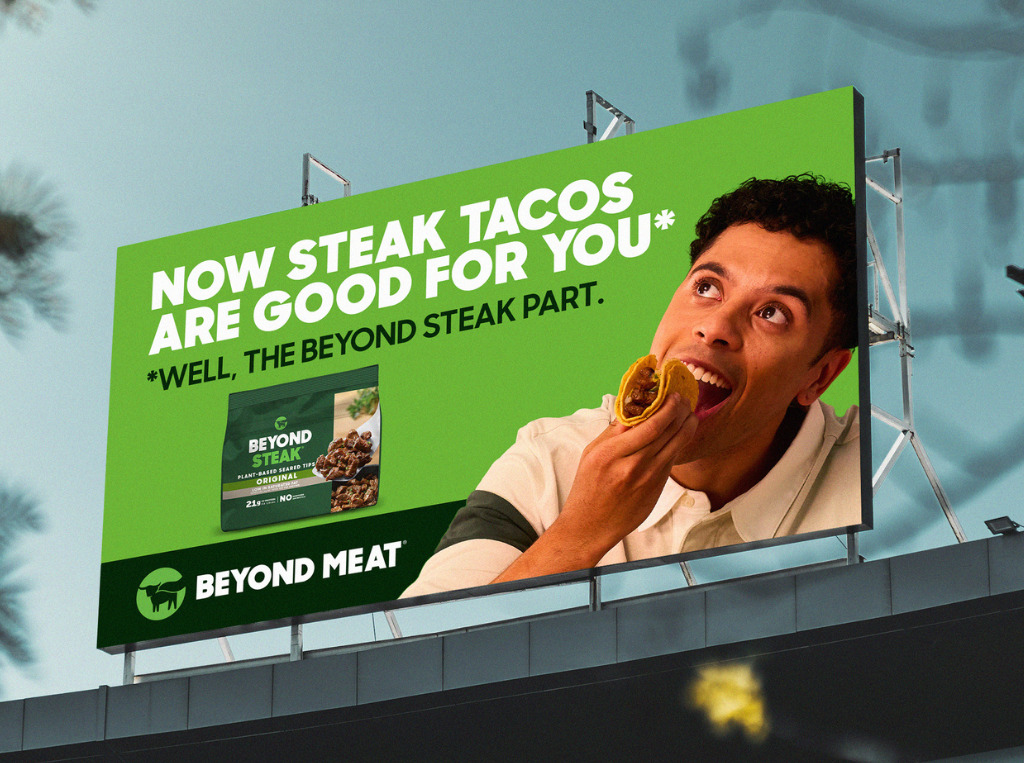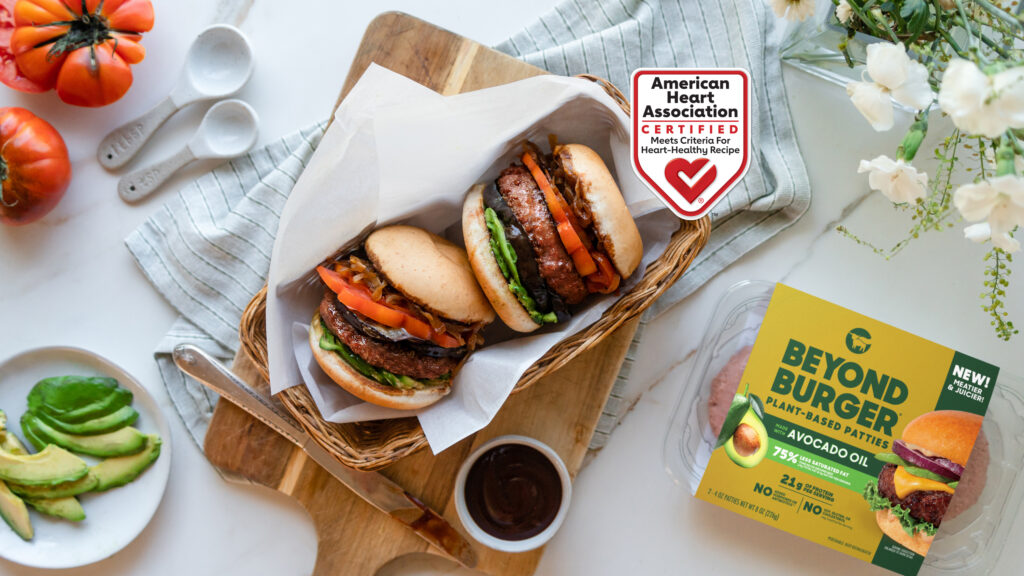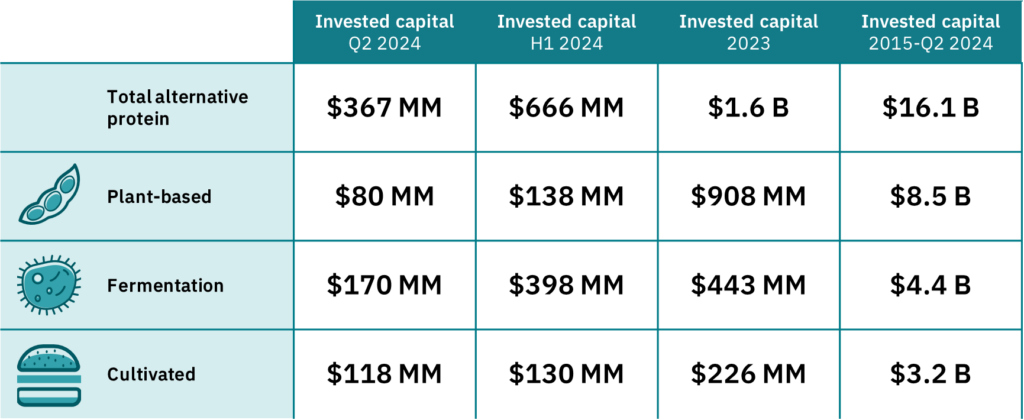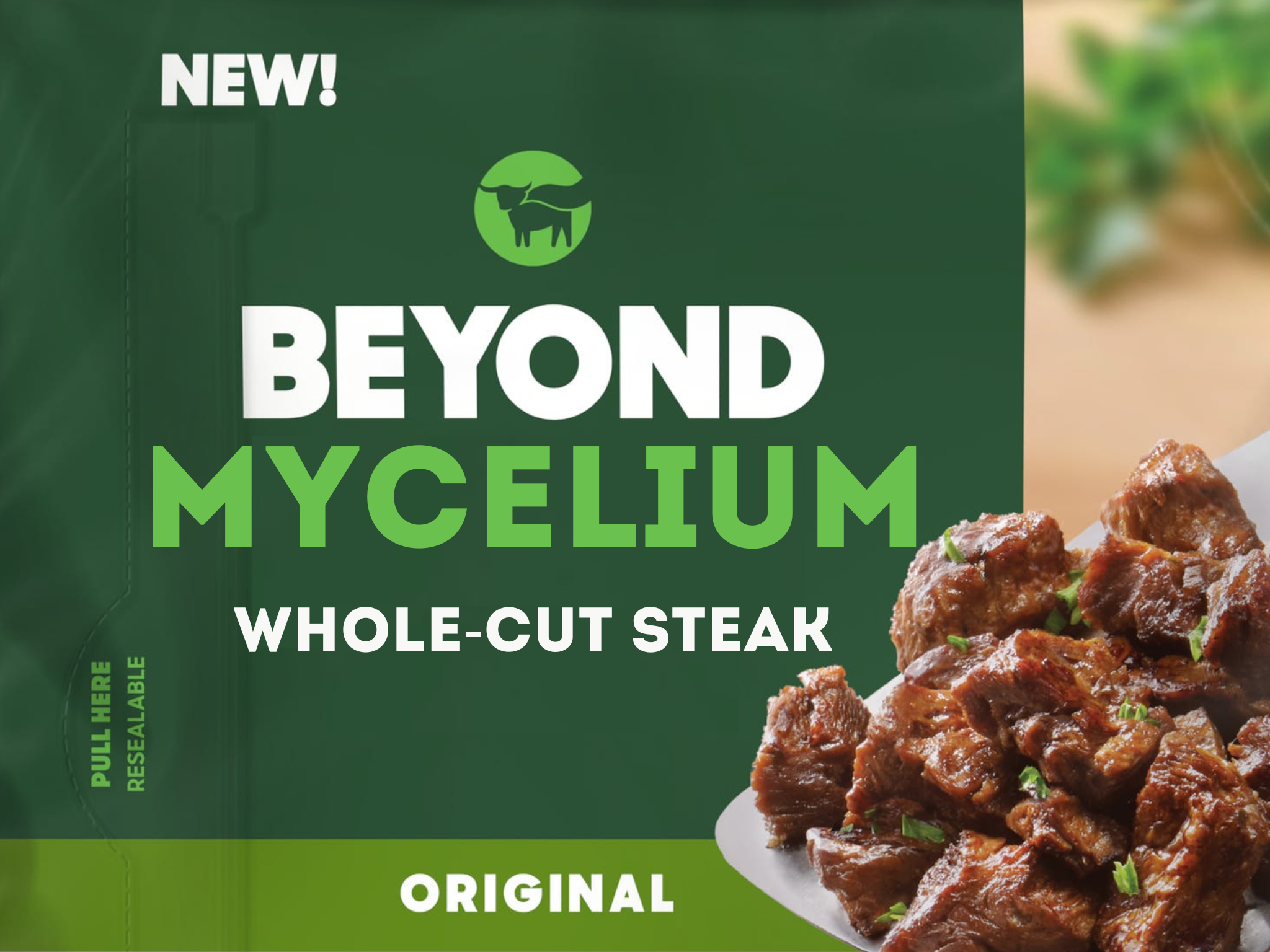Beyond Meat: Why Alt-Meat Maker is Going Beyond Plant-Based to Embrace Mycelium for Clean-Label Steak
6 Mins Read
Beyond Meat will soon launch a fermentation-derived mycelium steak to address consumer demand for clean-label products, with a likely launch through a health-focused restaurant chain.
One of the world’s most famous meat analogue makers is turning to fungi to attract health-conscious consumers and revitalise its faltering sales.
As misinformation about the health impacts of plant-based meat takes hold of consumer wallets – with messaging around ultra-processing and long ingredient lists particularly successful – Beyond Meat is responding by venturing into an entirely new product category.
The Californian company will roll out a clean-label, whole-muscle steak product made from mycelium, which will likely be launched via a partnership with a restaurant chain known for serving healthy food, according to CNBC, which first reported the news.
Beyond Meat CEO Ethan Brown said he imagined the mycelium steak as an alternative to chicken, a salad topping, and a burrito filling. “The focus on this has been a very small number of ingredients, very high protein, very low saturated fat,” he explained.
The company is also introducing a reformulated version of its chicken analogue, in line with the recent health-forward changes made to its beef and sausage ranges. While the company looks to turn around its fortunes – having suffered nine consecutive quarters of year-on-year revenue declines – Brown confirmed to CNBC that the vegan pioneer isn’t open to an acquisition.
Latest example of Beyond Meat’s health spotlight

Beyond Meat’s move into mycelium is a surprise pivot, but there have been signs all along. Ever since the company switched its marketing focus from planetary to human health, it has dug deep into R&D to come out with products better suited to what consumers want today.
And what they’re asking for are foods with shorter ingredient lists and better health credentials. Research shows that clean-label and natural ingredients were the factors that gained the most importance for CPG purchases between 2020 and 2022. And after the brand itself, the most important on-pack details driving food purchases are the ingredient list, ingredient claims, nutritional information, and health claims.
Beyond Meat based an entire marketing campaign on the heart-healthy certification of its existing Beyond Steak portfolio by the American Heart Association (AHA) last year. This has since extended to its Beef Crumbles.
The company also unveiled a major recipe change for its flagship beef and burger as part of the Beyond IV platform, which swapped coconut and canola oils for avocado fat, and added fava beans and red lentils to the ingredient list. Compared to its predecessor, the new Beyond Burger features 60% less saturated fat, 20% less sodium, and 20% more calcium per serving.

So diving headfirst into health has been intentional: after all, 55% of Americans eat meatless diets out of health concerns. Polling shows that health is also the most important driver of plant-based meat consumption in the country.
This is also why Beyond Meat debuted a new kind of sausage – one that isn’t meant to replicate meat, a first for the company. The Sun Sausage lineup is comprised of vegetables, grains and pulses, and contains 46% less fat (and 70% less saturated fat) than the pork-imitating Beyond Sausages, and that’s after the latter was revamped to the Beyond IV standard.
Mycelium, meanwhile, is low in fat and high in fibre (a nutrient Americans are underconsuming), and has 20-30% of protein content in dry matter, alongside all essential amino acids. It’s also a source of essential micronutrients like iron, zinc and vitamin B12, which are typically found in animal-sourced foods. A three-week early intervention trial has suggested that 190g of mycelium per day can lower LDL cholesterol by 21% on average versus animal protein.
Brown encapsulated the health strategy to investors in the Q2 earnings call, saying: “I believe it will be arguable whether Beyond Meat is, at its core, a plant-based meat company that delivers health and wellness, or a health and wellness company that makes plant-based meat.”
Beyond Meat moves into attractive mycelium market

Fermentation-derived proteins are the talk of the alternative protein industry right now. There are a host of companies working on mycelium meat alone, including The Better Meat Co, Prime Roots, Libre Foods, Mush Foods, and Meati. So Beyond Meat is entering a highly competitive mycelium market, which was valued at $3B last year.
Fermentation has also represented the bulk of investor interest in alternative proteins this year. While plant-based proteins and cultivated meat have been slow to recover from last year’s funding slump, fermentation startups have brought in $398M in the first half of this year, an amount three times higher than the former two sectors. This is also only $45M short of the segment’s 2023 total.
Investors’ waning interest in the market also coincided with a sales decline, with Americans spending 19% less money on refrigerated meat analogues in the 52 weeks to May 19, compared to the same period a year ago.
Beyond Meat, which accounts for a 7% share in refrigerated meat analogue sales in the US, suffered simultaneously. To enable a turnabout, it withdrew its poor-selling jerky line, brought production in-house, and hiked the prices of its products. The result? A 23% sales increase, a 10-point gross margin improvement, and 40% lower operating expenses from Q1 to Q2 this year.
So the higher markups are showing signs of working for the business, although whether it continues to attract consumers, only time will tell. Research has shown that cost is the biggest detractor of plant-based meat consumption in the US, driving away 53% of Americans.

At the same time, around half of global consumers say they’d pay more for clean-label products, prompting products like Elmhurst 1925’s single-ingredient TerraMeat chicken and Nosh.bio’s upcoming Koji Chunks, also made from just one (fermented) ingredient).
Despite doing well in Europe, Beyond Meat’s partnership with McDonald’s, which saw the fast-food giant sell its alt-beef patty in the McPlant burger, has failed to live up to expectations in the US. So partnering with a health-focused restaurant chain to launch its mycelium steak represents a concerted effort to revive its foodservice performance, where sales dipped by 19% in Q2 2024, compared to the same period in 2023.
“Our strategy today is to offer a somewhat more premium product, and that’s generating the restoration margins,” Brown told CNBC about the company’s recent moves. “It’s clear messaging around health. So it’s not a direct route, it’s not linear, but we’ll get there.”



